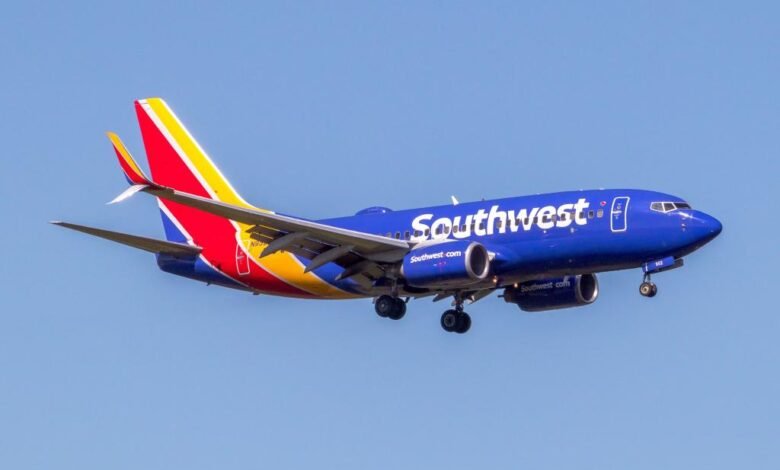Southwest flight plunged to within 400 feet of ocean off Hawaii: report

A Southwest Airlines flight came within just 400 feet of smashing into the ocean off the coast of Hawaii after aborting a landing due to weather conditions, according to a report.
On a flight in April, the Boeing 737 Max 8 suddenly plummeted several hundred feet in a matter of seconds before the flight crew was able to pull up at the last second to avoid a deadly crash, according to a memo Southwest sent to its pilots last week and obtained by Bloomberg.
No one was injured on the passenger flight, the airline said.
Southwest Flight 2786 was flying at an altitude of about 1,000 feet after bailing on a landing attempt due to poor weather conditions when it dropped to within 400 feet of the sea, according to data from ADS-B Exchange, a flight tracking website.

It fell at an alarming rate of more than 4,000 feet per second, according to Bloomberg.
The panicked pilot began to rapidly climb as fast as possible.
The pilot was “pitching up and pitching down with the power and close to out of control — very close,” Kit Darby, a former commercial airline pilot and flight instructor, told the outlet.. “It would feel like a roller coaster ride.”
The plane had departed from Honolulu for a short flight to Lihue Airport. Given the flight time, the captain put the “newer” first officer in command, according to the memo.
The pilot decided to abort the landing as the plane approached the airport because weather conditions blocked the view of the runway.
The first officer “inadvertently” pushed forward on the controls while monitoring the thrust level which moves based on the plane’s automatic throttle, the memo said.

To compensate, the pilot cut the speed which caused the airplane to rapidly descend and sounded alarms.
The captain ordered the first officer to increase thrust, causing the plane to “aggressively” climb at 8,500 feet per minute, the memo said.
The plane returned to Honolulu where it landed safely.
Darby told Bloomberg that flights descend gradually at roughly 1,500 to 2,000 feet per minute as they approach their destination, reaching 800 feet once within five miles of the airport.
“Nothing is more important to Southwest than Safety,” SouthWest told The Post in a statement when asked about the incident.
“Through our robust Safety Management System, the event was addressed appropriately as we always strive for continuous improvement,” the spokesperson added.
SouthWest concluded that better communication between crew members is vital, according to the memo. It pledged to review industry and internal data to determine if protocols and training need to be updated.
The FAA is investigating the incident, according to Bloomberg.
The scary mishap came just a month before a 73-year-old British man was killed when a Singapore Airlines Boeing flight hit severe turbulence Tuesday — plunging 6,000 feet and sending unrestrained travelers crashing into overhead bins.
Another 30 passengers were injured on the May 21 Boeing 777 flight, which was traveling from London to Singapore.
The quick change in gravitational force “likely resulted in the occupants who were not belted up to become airborne,” while the second shift likely caused them to come crashing back down,” The Transport Safety Investigation Bureau of Singapore reported.
Source link




